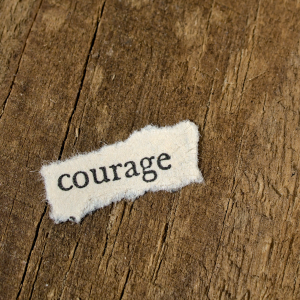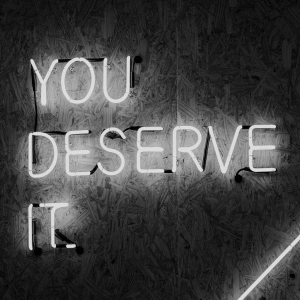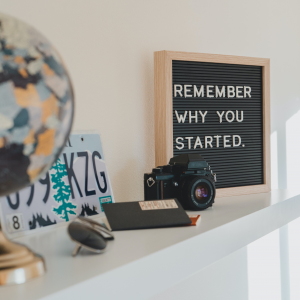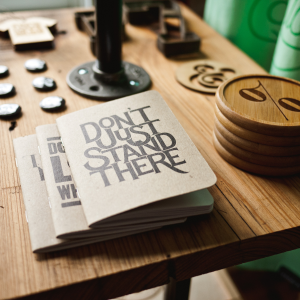Episode 82: Join me for this episode, where I talk about coping with loneliness and the fear of being alone after a divorce or breakup.




Prefer to read an article? Visit Kortneyrivard.com/blog
Show Notes:
At one point or another, life happens and we fall flat on our faces. Hard times happen and we have no choice but to get back up and keep moving forward.
But this can feel hard! It’s not easy to pick yourself back up after a major life setback. What do you need to do it?
You need the desire to persevere, and you also need resilience. Plus, you need some grit to give you the spark you need to make it happen.
In this episode, I talk about perseverance, resilience, and grit — How they’re intertwined and how you can build these muscles so you can bounce back easier from the hard times in your life.
Listen to the full episode to get all the details!
Resources
New Program!
This program will help you get your bearings and do the work necessary to create a roadmap for creating the bigger and better life that you deserve!
Join my Meetup group!
Do you live in the Washington, DC area?
If so, I invite you to check out my new meetup group: Rise Strong – Divorce/Breakup/Life Transition Support for Women
Do you want to learn more about how I can help YOU build resilience and grit? Let’s talk!
Schedule a call at www.kortneyrivard.com/lets-talk
Visit https://kortneyrivard.com/lovelife to download a free guide on how to create a life you love!
Support the show (https://www.buymeacoffee.com/kortneyrivard)
You May Also Like:
- Episode 82: How to Cope with Loneliness
- Episode 78: How to Bounce Back from a Breakup (or other life upset)
- The Real, Brave, & Unstoppable full episode catalog
Transcript:
[00:00:00] Hello everyone. And welcome back to a Real, Brave, & Unstoppable. This is episode number 83.
So just a few things before we dive into today’s episode. I have lots of news. This week is spring break for my daughter. That’s not really news that necessarily concerns you, but it’s always interesting to try to manage spring break with work. Those of you working moms out there, I guess you can probably relate to that.
But it is also nice to have some, some extra little time with my little miss who’s 12, my little bestie. A couple of other things. The podcast now has its own website, a dedicated website, so you can check it out at realbraveunstoppable.com. There is a spot for you to enter your email address and you can get on the email list. If you would like to receive updates, I will warn you,
you’re not going to get a lot of emails to start because I’m still kind of working on content [00:01:00] that will best support the show. So, you can be assured that if you put your email address in there, you’re not going to get flooded with emails. I promise. But it will help you stay up to date with the latest things that are going on on the podcast.
I recently started a meetup group. So cool. I’m so excited. Just on a whim was like, I’m going to start a meetup group for divorced women. Or, or women who have recently gone through a breakup. And mostly, I mean, I just thought, well, what a great way to share what I do, but also just, I mean,
I thought maybe I’ll meet some cool people this way. I’m always up for meeting new people. So I started it and like the next day it had like eight people signed up for it. And now I’m up to like 30. So I’m super excited about it. If you live in the DC area, sign up!
I’ll put the link in the show notes. If you’re local, go join that. And we’re going to probably have our first event, on the last weekend of April, which will likely be a hike. I was also gonna say about the podcast. Now that the podcast has its own website, I’m writing accompanying articles on my website, kortneyrivard.com so if at any time you prefer to read an article or read the article, in addition, you can go over to the blog there and do that.
Yeah. So the final thing is I would love to announce a new program! It’s called RISE. It’s a three-month one-on-one coaching program and it is designed to support women who are going through or have gone through a divorce or breakup and are rebuilding their lives. Super excited about this [00:03:00] program. I have been through it and I’m super excited to help people get through it too, to provide the support for you. I like to think of myself as a sherpa, that I will help you on your climb up the mountain. And I know you can do it and you don’t have to do it alone.
So with that, let’s dive into our episode. Today, I’m talking about resilience and perseverance with a little side of grit.
My journey is far from over, but resilience, perseverance, and grit are all reasons why I am where I am today. I’ve had so many times in my life where I have fallen flat on my face, and it’s really overwhelming to get back up and keep going. But while it’s never easy, I’ve always gotten back up and bounced back refreshed.
Well, refreshed might be a stretch, but a kind of, and armed with new lessons and new insights, you know, [00:04:00] ready to forge ahead. And it sounds simple when I say it, it hasn’t always been quite that simple, but that’s kind of the overall thing is, you just got to get up.
You just got to keep going.
There’s a quote, I forget who said it, and I’m just paraphrasing at this point, but it’s not about how many times you get knocked down. Really what matters is how many times you get back up again. I totally believe that for sure. I mean, and it is true, right?
I recently did an interview with Authority magazine, where I shared five things that you can do to be more resilient. During that interview, I was asked to share a time when I had one of my biggest setbacks and how I bounced back from that experience stronger than ever. The story I told was about when I discovered my marriage was over.
If you’ve listened to [00:05:00] this show for a while, you probably know the story, but the short version is I had spent 17 years of my life creating a future with a man that I loved, and our marriage was far from perfect, but we had hopes and dreams and all of that shattered along with my discovery that he had been having an affair with another man.
So I discovered that my husband and father of our two children is gay. At first, when I discovered this, I thought my life was over. I went into extreme depression. I couldn’t see how I was ever going to survive in this new life that I was being thrown into. I totally felt like a victim of my circumstances.
I was totally overwhelmed with fear about so many things.
I honestly did not know how I was going to make it. I mean, I knew I would, I think, deep down, but my brain was so overwhelmed with fear that. I couldn’t really see it at the time. [00:06:00]
But I did make it. And while my life is far from perfect, (no one’s life is perfect as we know), I’ve bounced back to carry on with my life and take it in the direction of new hopes and dreams that I have for myself. So I’m really creating a new life that’s bigger and better and different than the one before.
The life I’m building is really true to who I am. And no one can ever take it away from me because I built it based on who I am. And I’m solidly grounded in it. And since I created it, no one can take it away. So let’s talk a little bit about resilience and perseverance and grit.
I like to start with definitions a lot of the time. So, from Merriam-Webster, resilience is [00:07:00] defined as an ability to recover from or adjust easily to misfortune or change.
Now I would question the easily part. I wouldn’t say that I recovered easily from my misfortune. But nonetheless, I did recover. So, I think it still counts.
As I thought about that word though, resilience, I felt like there’s more to it. You know, how does one just like have something hard happen and then just bounce back. Like there’s more to it, right. You know, sure. I recovered, but I didn’t just recover in one easy linear process. So what else factored in?
Perseverance and grit, I think. Perseverance the definition of that is the continued effort to do or achieve something despite difficulties, failure, or opposition. And grit is the firmness of mind or spirit – unyielding courage in the face of hardship or [00:08:00] danger.
Now we’re talking. Those all just package up really well together. You know, resilience is possible because of perseverance and grit. And looking at those definitions, I can see that I have both of those qualities and I always have. Which has allowed me to build resilience. You’re able to be resilient because you persevere, you can’t just snap your fingers and say, well, I’d like to be resilient today in the face of adversity. I mean, technically you can do that, but the chances of the average human being a hundred percent resilient all the time without practice = Not very good. So taking this one step further, You’re able to persevere when you have grit. If you’ve ever read the book Grit by Angela Duckworth, it’s a very good book. But, she talks about how she discovered that talent alone is not a [00:09:00] guarantee of success.
She describes grit as a combination of perseverance and passion for a singularly important goal. And she goes on to say that is the hallmark of high achievers in all things.
And she goes on to say that what goes through your head when you fall down is so much more important than talent or luck.
Bingo. Love it. It’s exactly. One thing I noticed when I look back at the five things I shared with authority magazine to build resilience was that a common thread through most of the things was related to the stories we tell ourselves or what goes through our heads. Not just our thoughts, but the narrative running
on autopilot in our head. For example, an example of a story is let’s say I lose a bunch of money in an investment. But I have the story running in my head. [00:10:00] That says I shouldn’t have invested that money because I’ve always made stupid decisions with money. And I really should never try that again.
I’m likely to just cut my losses and continue telling myself that story. Right. And that’s going to further prevent me from future opportunities that might come my way. So just going to give up. That story tells me don’t touch that hot stove again. Plus that narrative is probably going to also affect your confidence in the future with things related to money or investing money.
On the flip side. What if you had a different story that was like, oops, oops. That didn’t work out. So let me look at what I could have done differently. So I don’t make that same mistake again. Next time. You haven’t made that incident mean anything about you or your intelligence or your worth. So you just move on. You just bounce back, right?
That was back from your misfortune. Your resilience.
So when you [00:11:00] have a desire to persevere, like to look at your lessons and keep trying. That helps you bounce back and grit, which is the underlying courage in the face of hardship or fear that makes it possible to persevere. And those two things I think are what really build resilience or what factor into resilience.
I could use my own story as another example. I’ve always been a person who’s had the courage to persevere, even when things are really hard, I’m just really driven that way – even though my stories get in my way sometimes too. After my divorce, there were days when I did just want to lay down and give up.
It seemed really hard and way too risky to try to rebuild myself in my life. Mostly I was just so overwhelmed with it. It was scary. It was uncertain. And my stories at the time told me that I was incapable and really unworthy. But even though I was in that really terrible place and felt kind of [00:12:00] hopeless, I still had this underlying grittiness. There was something that was deep inside me that told me that I still had the courage. You know, to keep going, even if it was scary, right. That was the grit piece of things.
That was already there. But if I hadn’t had it or the desire to persevere. I wouldn’t have been able to find that resilience piece of me. I wouldn’t have been able to be resilient to bounce back and to rebuild. I likely would’ve stayed in that victim energy space
and probably lived my life with chronic depression and anxiety. So I’m glad that I figured that out.
But I didn’t feel resilient at the time or particularly gritty. But those qualities were really tucked away. They were just waiting for me to find them again.[00:13:00] Grit helped me get started and the drive to persevere helped me rebuild that resilience muscle. You know when you’ve built up your muscles a lot, you’ve been working out and then you take a break and you kind of have forgotten that you have the strength or your body has forgotten, but then you start working out again and it comes back pretty quickly.
That’s kind of what I’m talking about here is that your stories kind of tell you things that aren’t helpful about how you can’t succeed or you’re incapable. You’re not worthy. But then, you know, when you look and find that little bit of grit or the drive to persevere, it leads you back to that resilience pattern. And the more you practice it, the stronger that gets.
That’s why I always talk about looking inside for what you need, what you need is not outside of you. You can find that, that grit. You’re not going to find it outside of you. It’s inside it. It’s inside your heart. You’re going to find it. If [00:14:00] you sit and look there.
I want to talk about the five things that I did share with Authority magazine about what I believe helped build resilience, because like I said, it is a muscle. You have that underlying grit, grittiness, or drive to persevere, even if it’s little, you can build those things to find that little spark.
And then. You have what it takes to really start to build that resilience muscle.
The things that I talked about in the interview I did with authority were, where first of all, really check your perspective. Circumstances are inherently neutral. They don’t have any meaning until we give them a meaning.
If you go to get ice cream and all they have is [00:15:00] chocolate ice cream. They’re out of there out of everything else except chocolate ice cream,
they’re out of chocolate ice cream is the circumstance. One person might not care at all because they love chocolate ice cream. And that’s what they would’ve picked anyway. But another person hates chocolate ice cream.
And they’re going to be pissed that the only kind of ice cream is chocolate. So same circumstance, two different meanings, right? Circumstances don’t have meaning until you give them meaning. And the meaning is typically derived from our stories or that narrative that’s playing in our heads about ourselves in the way the world works.
So take a good look at the story you tell yourself about your circumstances. Adversity might seem insurmountable, but it doesn’t have to be. And most people don’t realize this, but you are totally a hundred percent in control of the [00:16:00] stories you tell yourself about your life situation. Your stories, or your thoughts, create your feelings
and your feelings affect your outcome. So. If you can work on thinking differently about your situation, it will help you power through those tough times. It’ll help you kind of reframe them so you are able to put one foot in front of the other a little more easily.
The second thing is to accept your circumstances and let go of your need to control. This is hard for a lot of us, including myself. But out of all the things I’m going to talk with you about today, this one probably is the biggest one. I probably should have put it first!
You can’t control anything that’s happening outside of you. So it’s really more productive to focus on what you can control, which is how you interpret things and how you [00:17:00] respond to things outside of yourself. One of my favorite authors, Pema Chodron -she’s a Buddhist nun and, as I said, an author, a very prolific writer who has tons of books. They’re all amazing.
But she says that the reason that we suffer is that we cling to the way we want things to be or the way we think things should be. We get so attached to that and we can’t really see any other way that would be okay for us. When I went through my divorce, for example, I had this incredibly hard time wrapping my head around the fact that I no longer had a normal quote, unquote, normal family.
The story in my head was that a normal family included two married parents who lived in the same home with their children. So when I was finally able to let go of this and embrace a new story – that there’s really not any such thing as normal, just different, my pain was a lot easier to manage. I’m also a photographer and I specialize, or I did at the time, specialized in children and family.
I couldn’t photograph families because it highlighted that I did not have that normal family anymore. And so when I finally could let go of that, that they’re just a different kind of family. And that’s not to say it wasn’t hard or it still is hard. But, you know, it just is so like accepting that. And letting go of that. That’s the way it has to be for it to be good.
That’s what I had to do in order to feel better about myself and about my life and to actually move forward.
So how does this play into resilience? Well, when you can accept what’s happening, even if you don’t like it, (that’s the other thing… it doesn’t mean you like it. It is what it is) and you can navigate the bumps in life more gracefully. You can kind of roll with the punches a little bit more.
When [00:19:00] you’re accepting or letting go, you tend to be more in the present. And that makes it easier to just kind of take the next step that you need to take forward.
The next thing is to work on your relationship with yourself.
The relationship you have with yourself really is the most important relationship that you will ever have.
It’s the basis for all the relationships you have with other people.
So, how do you feel about yourself? Do you love who you are? Most of us have an easier time seeing. Our flaws. And our shortcomings things that are wrong. We beat ourselves up a lot more easily than we celebrate ourselves. But when you’re in the middle of a really hard time. That’s really not super helpful.
It’s really important to celebrate your strengths. Look at your accomplishments. Look at what’s going well.
The negatives really do come up so much more easily. It’s just human [00:20:00] nature. But make sure you give the positive things, the good things, some attention to equal attention. When you can get in touch with who you are when you can accept your flaws because we all have flaws. And when you can celebrate your strengths you will be able to find the courage and the strength to show up in the world in a way that’s true to who you are.
And when you can draw on those innate superpowers, you have, that will help you stay on track and focused on getting through the hard times.
I’ve found personally that this work has helped me just find a good foundation and it’s helped me really ground into who I am and where I am in my life. And it’s actually helped me with the previous thing, which is acceptance and letting go.
The fourth thing is connection. Connection is king! [00:21:00] Seek out connection with other people. You don’t have to do this alone. A lot of us feel like we have to have it all together all the time. Or we might have stories that people will have time to help us and things like that.
But you don’t have to do this alone. It’s so much easier to build resilience when you surround yourself with other people who will lift you up when you’re feeling down.
And don’t be afraid to reach out for support. I alluded to it before, but there have been several times in my life – many, many, many times in my life where I didn’t ask for help or support because I either had a story that said everyone else is too busy, or that I had to look like I had my shit together all the time. Recovering perfectionist here!
But that’s a pretty lonely place to be when you’re struggling with something. There was a certain point where I felt so broken that I just didn’t have the energy to put on any armor. So [00:22:00] I realized that when that was the case when I showed up simply being myself without worrying about what I looked like or without worrying about any of those things,
I started to build these deeper, more meaningful connections. And I just, found that when you have the courage to be yourself, other people feel more comfortable being themselves too. They feel more comfortable letting their guard down. It’s contagious. So having these connections to other people is really going to help you draw on your innate strengths, like your grittiness and your drive to persevere when the going gets tough. That helps you be resilient.
And the last thing is to take good care of yourself.
I know, you’ve heard the saying you can’t pour from an empty cup. It’s also true that an empty cup will not give you any reserves that you need to persevere in hard times. [00:23:00] So when you’re feeling overwhelmed or run down, exhausted, burned out it’s a lot harder to keep a positive outlook on what’s not going right in your life.
It’s hard to do all of the things that I talked about already today, Accept, Check Your Perspective, Connect with People, Work on your Relationship with Yourself. It’s hard to do those things. If you’re not adequately rested and fueled.
During the hardest times of my life, not taking care of myself would lead to depression. And I really had to make sure that I got enough sleep, ate healthily, and moved my body in ways that felt good. Other things that are important are to manage your stress, manage your to-do lists, set boundaries, don’t be afraid to say no sometimes, and make sure you take a lot of time out for yourself for your soul. Like if you journal or meditate or [00:24:00] hike, be in nature, and make sure you have that time. It’s so important. These things really should be non-negotiable in your life because the cost of not having this self-care in place is just way too high.
You’re going to be able to navigate hard times so much easier when you have this rest and this nourishment in place. So at the end of the day, we’re all capable of being resilient. And some of us come by it easier than others, but it really is like a muscle that you can strengthen. The five things I talked about today can help you build that muscle.
When you combine it with your desire to persevere and that gritty courage to keep putting one foot in front of the other you’re totally going to be unstoppable. So great topic. I love talking about resilience. I hope that these things were helpful for you. I hope that you can [00:25:00] really take note of them and maybe put some of them into practice or work on some of these things in your own life. And don’t forget to try to get out of your head sometimes and get into your body and just sort of feel into that. Where do I feel that grit in me? We all have a little bit of it. So just kind of sit with it. Where do I feel that gritty courage in me? What does it feel like? And where can I practice using that this week? So that’s my challenge to you this week: where can you practice gritty courage?
All right before I go. One more thing. I just want to remind you to check out my new program, RISE – the three-month private coaching program. It’s geared towards women who are rebuilding their lives after a divorce or breakup. If that is not, you, if you are just going through a really rough time in your life this program will help you too. [00:26:00]
But in this program, I’m going to help you get your bearings. A lot of times when we’re in this place, we feel a little lost. Like, where am I going from here? I don’t even know who I am outside the relationship, like a lot of those things. And so I’m going to help you get your bearings. It’s kind of like when you’re
In a shopping mall and you’re trying to find where you are and there’s the, you are here thing on the map. And you’re like, okay. I can’t even figure out where that actually is for me. Or like if you’re, you know, out in the wilderness and you have a map, but you don’t really know what part of the map you’re standing on.
That’s one of the first things in this program is just to kind of get your bearings. Get honest about where you’re at, you know, what’s not going well, what is, what is going okay. And what do you want to change? And then in the program, there are a lot of things that we work on. And everybody’s different. So things that we work on are managing your emotions, and learning how to feel them [00:27:00] without freaking out or numbing out with alcohol or food.
Learning how to manage your mind. It’s true that time heals. However, you can’t just sit there and wait for time to heal. You need to work on your mind and the stories in your head that are keeping you from healing. So that’s a big part of it. And we also work on reconnecting with ourselves.
Having some accountability over getting back to some of the activities that you loved to do before your relationship, reflecting on the person you are without the relationship. And then also loving that person – all the parts, all the parts.
The goal of the program is really to get you, as I said, get your bearings and get to the place where you feel like you can kind of create a roadmap for moving forward and really rebuilding, creating the life that you want. That’s bigger and better than what you had before.
Creating a life that is yours. No one can take it away from you because you created it [00:28:00] based on the truth of who you are. It’s a really great program and I’m excited about it. We’re going to be doing a retreat later this year. Date, exact date, and location TBD. Lots of good stuff happening here. So excited.
All right friends, if you haven’t already. If that program interests you, or if you’re interested in what else I’ve got going on over here. Go to my website, kortneyrivard.com/lets-talk. And if you’re interested in RISE to check out more details about that, It’s kortneyrivard.com/rise.
All right friends. I will see you next week. Thank you for tuning in.







